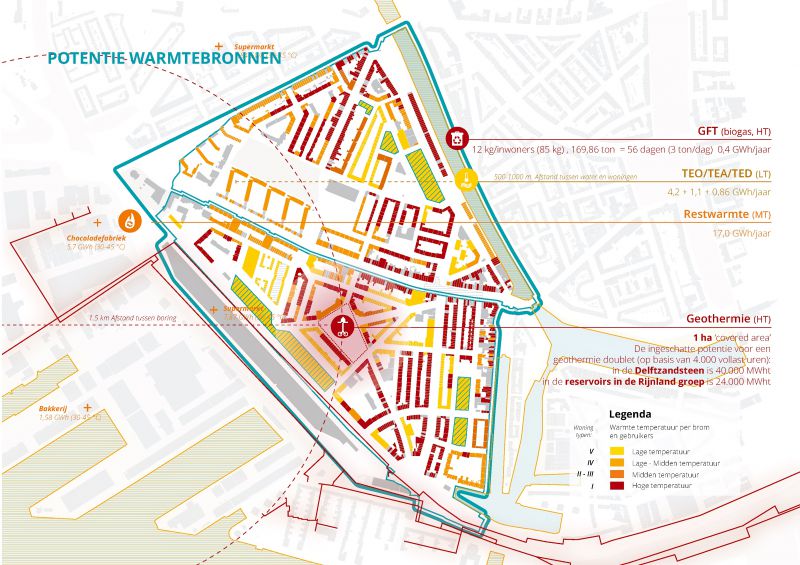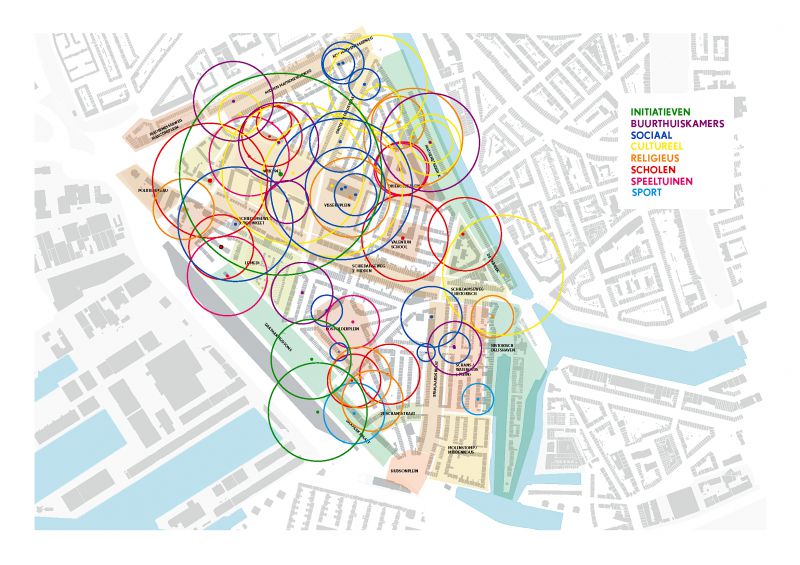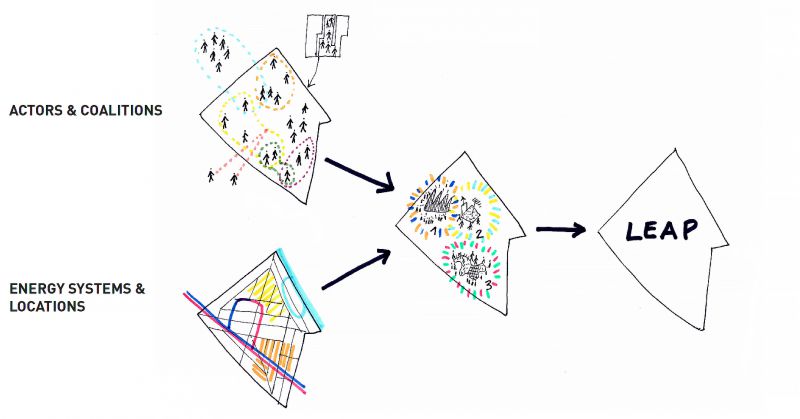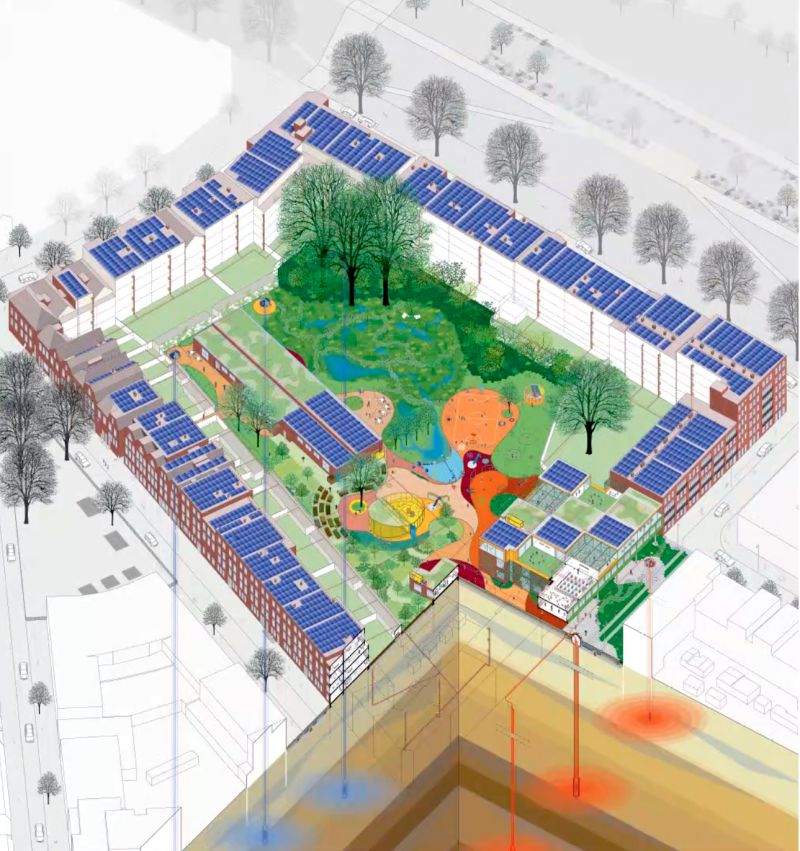In the summer of 2019, the IABR–Atelier Rotterdam carried out two parallel studies into local energy in the Bospolder-Tussendijken (BoTu) neighborhood under the heading ‘Building Blocks for a Cooperative Approach.’ They constituted an investigation into the spatial-energetic building blocks that are required and a mainly anthropological exploration of BoTu’s established and as yet uncharted invisible social networks. In 2020, the results of these two exploratory studies were employed to take the next step: a LEAP, a Local Energy Action Plan.

Potential heat resources in BoTu
IABR–Atelier Rotterdam - PosadMaxwan & Generation.Energy
Spatial-Energetic Building Blocks
The research into conceivable spatial-energetic building blocks was commissioned by the IABR and carried out by PosadMaxwan & Generation.Energy. It charted the potential for generating, saving, storing, and exchanging energy; identified costs and benefits and ways to create cohesion; and studied the extent to which our efforts to achieve the goal of being CO2-neutral by 2050 is likely to bear fruit.
The outcome is a package of possible measures that can be assessed by assigning each so-called Spatial-Energetic Building Block a ‘value’ based on questions such as: How does this building block perform in terms of sustainability and on what scale? Does the building block require the involvement of individuals or that of the collective? Can we develop a business case for this building block or does it require public funding?
The study can be downloaded at the bottom of this page (only in Dutch)
Social Building Blocks
The investigation into the role that both established and as yet invisible social networks in the neighborhood can play in the energy transition was carried out by four local parties that know BoTu well and worked closely together: Transformers, Beekhuizen Bindt, Eliza Works, and Steps2Inspiration. The research was also an anthropological exploration of BoTu’s self-image, of the needs and challenges of today, and the requirements and wants for the future with which the residents identify.
The study can be downloaded at the bottom of this page (only in Dutch)

(In)visible social networks in BoTu
IABR–Atelier Rotterdam - Transformers, Beekhuizen Bindt, Eliza Works, Steps2Inspiration
LEAP
In 2020, the IABR–Atelier employed the results of the two exploratory studies to take a next step: a LEAP, a Local Energy Action Plan. This involves a new approach to the energy transition. Considering the potential of the spatial-energetic Building Blocks, the Atelier explored which trajectories and projects to design and implement a transition path to 2050 that is supported by the district can be realized in collaboration with active and activated local networks.
An introduction to the LEAP can be downloaded at the bottom of this page

Towards a LEAP
© IABR, Ooze
With LEAP, which is being researched and advanced by Rotterdam-based OOZE Architects and Urbanists, the IABR–Atelier Rotterdam delved deeply into BoTu to (be able to) explore how the energy transition can serve as a lever for a broader qualitative leap that also contributes to the realization of the Sustainable Development Goals on the scale level of the neighborhood.
CASE 1: OBS DAKPARKSCHOOL EN BINNEN GEBIED
OOZE's design study into an integral approach to making the OBS Dakparkschool and the inner courtyard that this primary school shares with the Center for Culture and Participation (CCPR) and the Rijnmond Multicultural Center Foundation (RMC) more sustainable, is now ready. Availabe in Dutch only, it can be downloaded at the bottom of this page where you can also find an Executive Summary in English.

towards a sustainable Dakparkschool plus inner court
© IABR, Ooze
BoTu becomes a Test Site that can provide new insights and alternative approaches to realizing the energy transition, also in other districts in Rotterdam as well as beyond. This role of BoTu as a social-spatial-energetic laboratory is highlighted during IABR–DOWN TO EARTH, in the exhibition WHOSE ENERGY IS IT, ANYWAY?
The IABR–Atelier Rotterdam: Energy Transition as Leverage for Socially Inclusive City Making is initiated by IABR and is carried out in collaboration with the Municipality of Rotterdam (Department of Urban Development and Resilient Rotterdam)




